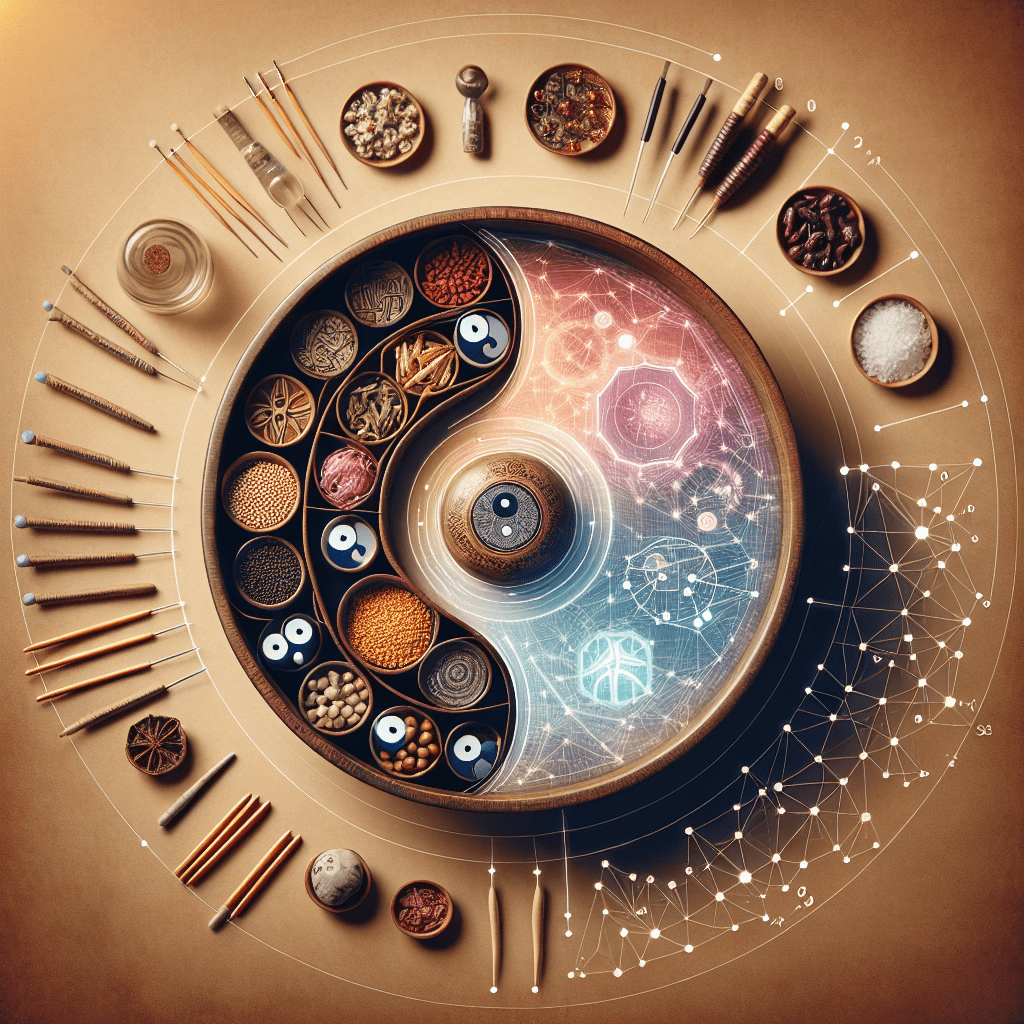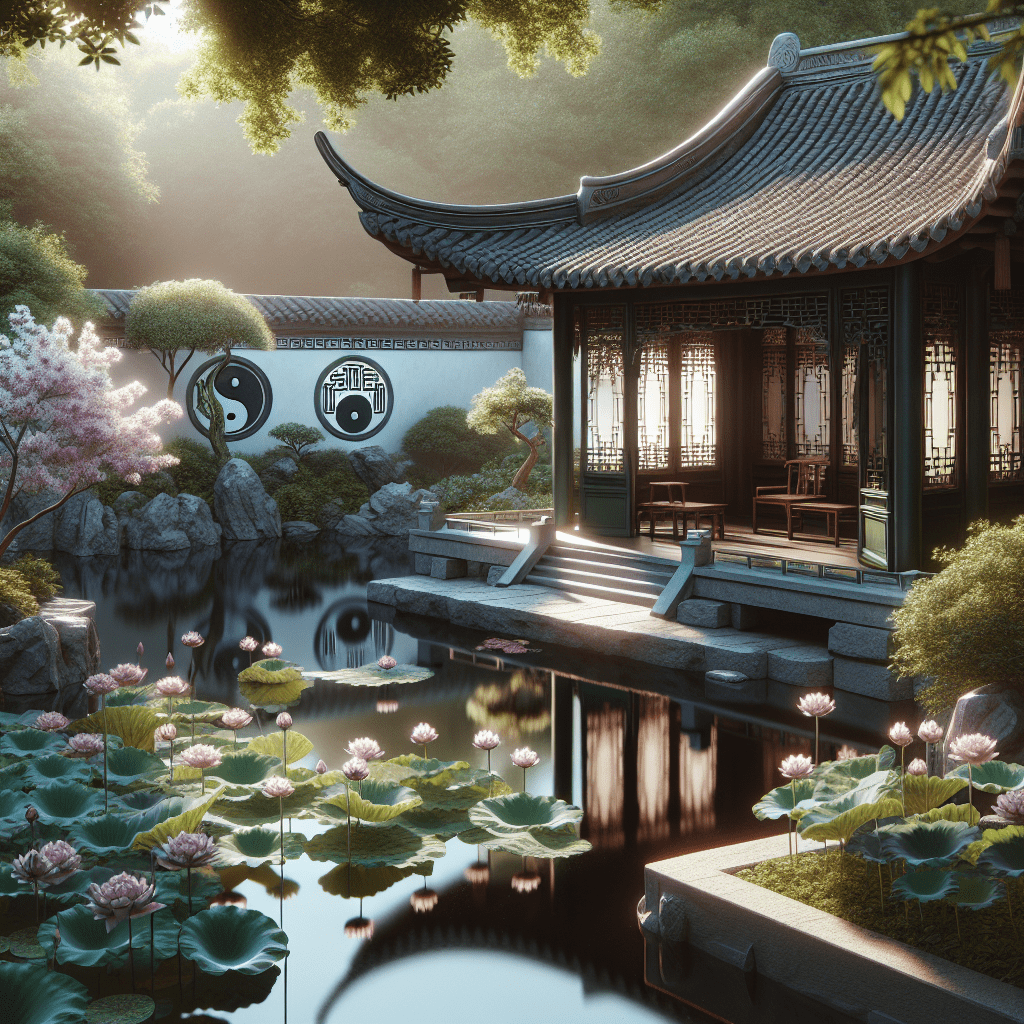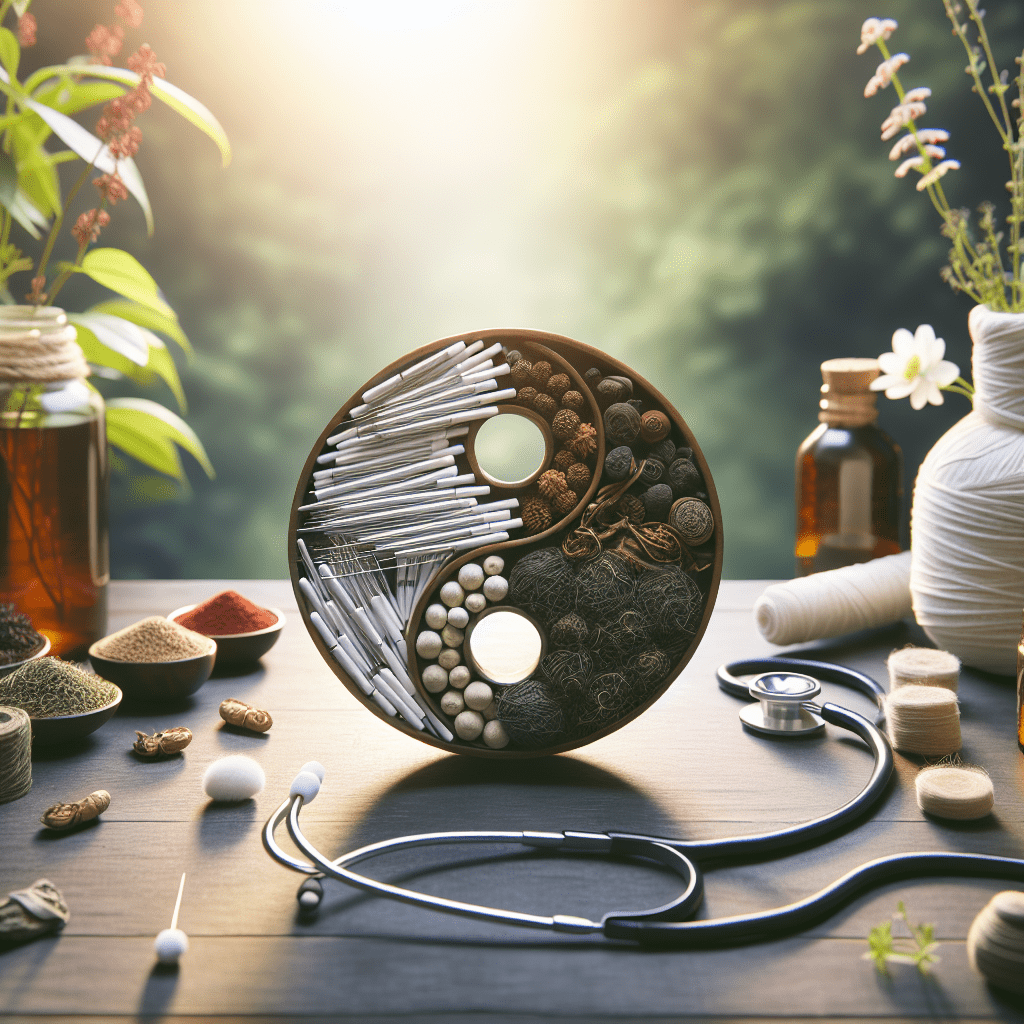In a world dominated by quick fixes and symptom-focused treatments, an ancient healing tradition continues to gain ground among those seeking deeper, more holistic approaches to health. Traditional Chinese Medicine (TCM) offers a refreshing perspective—one that views health not just as the absence of disease, but as a harmonious balance between body, mind, and spirit.
This 2,000-year-old medical system is experiencing a remarkable renaissance in modern wellness circles, and at its heart are the dedicated Doctors of Chinese Medicine who serve as both healers and guides on the journey to optimal health.
The Wisdom of Traditional Chinese Medicine
Traditional Chinese Medicine stands apart from conventional Western approaches through its holistic lens. Rather than isolating symptoms or body parts, TCM sees the human body as an interconnected system where physical health, emotional wellbeing, and spiritual balance all play crucial roles in overall wellness.
“TCM represents a fundamentally different way of understanding health,” explains Dr. Lin Wei, a Doctor of Chinese Medicine with over twenty years of practice. “We don’t just ask ‘what’s wrong?’ but rather ‘why is this person’s natural balance disrupted?'”
This ancient medical tradition is built upon several key concepts that form its philosophical foundation:
- Qi (pronounced “chee”) – the vital life energy that flows through pathways called meridians
- Yin and Yang – complementary opposites that must remain in harmony
- Five Elements Theory – the interconnection of wood, fire, earth, metal, and water that correspond to organs and emotions
- Zang-Fu Organ Systems – which extend beyond physical organs to include emotional and energetic functions
What makes TCM particularly appealing to today’s health-conscious individuals is its emphasis on prevention and personalization. “In Chinese Medicine, there’s no one-size-fits-all approach,” says Dr. Wei. “Each person has a unique constitutional type and specific imbalances that require individualized care.”
The Doctor of Chinese Medicine: Roles and Healing Methods
A Doctor of Chinese Medicine is far more than just a healthcare provider—they’re detectives, philosophers, herbalists, and healers all rolled into one. Their approach to diagnosing and treating patients differs dramatically from Western medical practitioners.
When you visit a Doctor of Chinese Medicine, expect a consultation unlike any conventional medical appointment. These skilled practitioners employ four primary diagnostic methods:
- Looking – Observing facial color, body structure, and particularly the tongue, which serves as a map of internal health
- Listening and Smelling – Noting the quality of breath, voice, and body odors
- Asking – Detailed questions about symptoms, lifestyle, emotions, and family history
- Touching – Most importantly, pulse diagnosis, where practitioners detect subtle variations across twelve pulse positions
The pulse diagnosis is particularly fascinating—a skilled Doctor of Chinese Medicine can identify dozens of distinct pulse qualities that reveal information about specific organ systems and imbalances. By gently pressing three fingers at different depths on each wrist, they gather crucial information about your health status.
“Through pulse diagnosis alone, I can often detect imbalances months before they manifest as physical symptoms,” explains Dr. Sarah Chen, who practices in San Francisco. “It’s like reading the subtle energy currents of the body.”
Once a diagnosis is established, Doctors of Chinese Medicine employ a range of treatment methods:
- Acupuncture – The strategic placement of hair-thin needles along meridian pathways to regulate qi flow
- Herbal Medicine – Complex formulations of plants, minerals, and sometimes animal products tailored to each patient
- Moxibustion – The warming of acupuncture points using burning mugwort
- Cupping – Creating suction on the skin to increase blood flow and release tension
- Tuina – A therapeutic massage that manipulates qi and blood
- Dietary Therapy – Food recommendations based on energetic properties rather than just nutritional content
- Mind-Body Practices – Guidance in tai chi, qigong, and meditation
What sets Doctors of Chinese Medicine apart is their commitment to addressing root causes rather than just alleviating symptoms. “We don’t just want to make your headache go away,” says Dr. Chen. “We want to understand why you’re getting headaches in the first place, and restore the balance that prevents them from returning.”
Specialties Within Chinese Medicine
While all Doctors of Chinese Medicine share foundational knowledge, many develop specialized expertise in particular areas of health. These specialties allow them to address specific health concerns with even greater precision and effectiveness.
Internal Medicine in Chinese Medicine focuses on conditions affecting the internal organ systems, including digestive disorders, respiratory issues, cardiovascular health, and immune function. Practitioners in this specialty might treat conditions like irritable bowel syndrome, asthma, or chronic fatigue using carefully crafted herbal formulas and acupuncture protocols.
Women’s Health has long been a strength of Chinese Medicine, with detailed understanding of menstrual health, fertility, pregnancy support, and menopausal transitions. “Chinese Medicine offers women alternatives to hormone therapy and other conventional treatments,” explains Dr. Michelle Li, who specializes in women’s health. “We can regulate cycles, reduce PMS symptoms, enhance fertility, and ease menopausal transitions using gentle, natural approaches.”
Orthopedics and Pain Management represents another major specialty, with techniques like acupuncture, cupping, and specialized tuina massage providing relief for everything from sports injuries to chronic back pain and arthritis. Research consistently shows acupuncture’s effectiveness for pain conditions, making this specialty increasingly popular.
Pediatrics in Chinese Medicine adapts treatment methods for children, often using gentler techniques like non-insertive acupuncture tools, mild herbal formulas, and specialized massage protocols designed for younger patients.
Mental and Emotional Health specialists focus on conditions like anxiety, depression, and stress-related disorders. These practitioners recognize the profound connection between emotional wellbeing and physical health, using acupuncture points that specifically influence mood and herbal formulas that calm the spirit.
Dr. James Wong, who specializes in mental health, explains: “In Chinese Medicine, we don’t separate the mind and body. Emotional imbalances can cause physical symptoms, and physical issues can affect mental health. Our approach treats the whole person.”
Becoming a Doctor of Chinese Medicine: The Educational Journey
The path to becoming a Doctor of Chinese Medicine involves rigorous education combining both theoretical knowledge and extensive clinical practice. Today’s practitioners undergo comprehensive training to ensure they’re equipped with both traditional wisdom and contemporary understanding.
In the United States, accredited programs typically offer:
- Master’s Degree in Acupuncture and Oriental Medicine (MAOM) – A 3-4 year program covering foundational theory and clinical practice
- Doctor of Acupuncture and Chinese Medicine (DACM) – An advanced 4-year program with additional biomedical training
- Doctor of Acupuncture with Chinese Herbal Medicine Specialization – Programs that provide in-depth training in herbal formulation
These programs require around 3,000-4,000 hours of education, including classroom study and supervised clinical internships. Students learn not only the ancient theories and techniques but also modern biomedical sciences, ensuring they can bridge traditional and contemporary approaches.
The curriculum typically includes:
- Chinese medical theory and diagnosis
- Meridian and acupuncture point locations
- Needling techniques and clinical safety
- Chinese herbology and formula creation
- Western medical sciences (anatomy, physiology, pathology)
- Clinical observation and practice
- Ethics and practice management
After completing their education, aspiring practitioners must pass national board examinations administered by the National Certification Commission for Acupuncture and Oriental Medicine (NCCAOM) and obtain state licensure.
“The educational standards have risen dramatically in recent decades,” notes Dr. Michael Zhao, who teaches at a leading Chinese Medicine school. “Today’s graduates have a much stronger foundation in both Eastern and Western medical concepts, allowing them to practice more safely and effectively.”
Bridging Ancient Wisdom and Modern Technology: EASTCHI AI
The philosophy of Chinese Medicine—with its emphasis on personalization, prevention, and holistic balance—aligns perfectly with emerging technologies designed to make health wisdom more accessible. HerbalsZen’s EASTCHI AI represents a groundbreaking bridge between ancient Eastern medical knowledge and cutting-edge artificial intelligence.
EASTCHI AI draws upon the same foundational theories that Doctors of Chinese Medicine use in their practice, particularly the Five Element Theory, which connects constitutional types to specific health tendencies and needs. Just as a Doctor of Chinese Medicine would assess your unique constitution, EASTCHI AI analyzes your individual patterns to create tailored recommendations.
This innovative platform offers personalized nutrition plans based on traditional principles of food as medicine—a cornerstone of Chinese Medicine. In TCM, foods aren’t just sources of nutrients but have energetic properties like warming, cooling, drying, or moistening effects. These properties make foods suitable for specific constitutional types and health conditions.
For example, if you tend toward what Chinese Medicine calls “Spleen Qi deficiency” with digestive weakness and fatigue, EASTCHI AI might recommend warming, easy-to-digest foods like sweet potatoes, ginger, and bone broth while suggesting you limit cold, raw foods that could further weaken digestive function.
The system also incorporates the traditional concept of seasonal eating—another key aspect of Chinese Medicine’s preventive approach. “In Chinese Medicine, we believe in living in harmony with natural cycles,” explains traditional medicine expert Dr. Anna Liu. “Eating cooling foods in summer and warming foods in winter helps maintain health throughout the year.”
While EASTCHI AI doesn’t replace the personalized care of a Doctor of Chinese Medicine, it makes daily application of Eastern health principles accessible to everyone. It serves as a complementary tool that helps users integrate traditional wisdom into modern life.
The Growing Recognition of Traditional Chinese Medicine
As interest in holistic and preventive health continues to grow, Traditional Chinese Medicine is gaining increased recognition within mainstream healthcare. Major research institutions now study acupuncture and Chinese herbs, with numerous clinical trials demonstrating efficacy for conditions ranging from chronic pain to digestive disorders.
The World Health Organization recognizes acupuncture as effective for dozens of conditions, and many insurance plans now cover TCM treatments. Integrative medical centers at prestigious hospitals increasingly include Doctors of Chinese Medicine on their healthcare teams.
Dr. Robert Johnson, who practices at an integrative clinic, observes: “We’re seeing a paradigm shift where patients want approaches that address root causes and support the body’s natural healing abilities. Traditional Chinese Medicine offers exactly that.”
This ancient system offers valuable perspectives for contemporary health challenges—particularly chronic conditions that respond poorly to conventional approaches. Its emphasis on balance, moderation, and individualized care provides a refreshing alternative to one-size-fits-all treatments.
As we face increasing rates of stress-related illness, autoimmune conditions, and lifestyle diseases, the wisdom of Chinese Medicine—with its focus on prevention and whole-person wellness—becomes even more relevant.
Whether you’re dealing with a specific health challenge or simply seeking to optimize your wellbeing, consulting a Doctor of Chinese Medicine can open doors to healing approaches that have stood the test of time. These dedicated practitioners, with their unique blend of ancient wisdom and modern understanding, offer a pathway to health that treats not just your symptoms but your entire being—body, mind, and spirit.
In the words of ancient Chinese physician Sun Simiao: “The superior doctor prevents illness, the mediocre doctor treats impending illness, and the inferior doctor treats actual illness.” In our quest for true health, perhaps we could all benefit from the preventive wisdom and holistic vision that Doctors of Chinese Medicine continue to preserve and practice.




